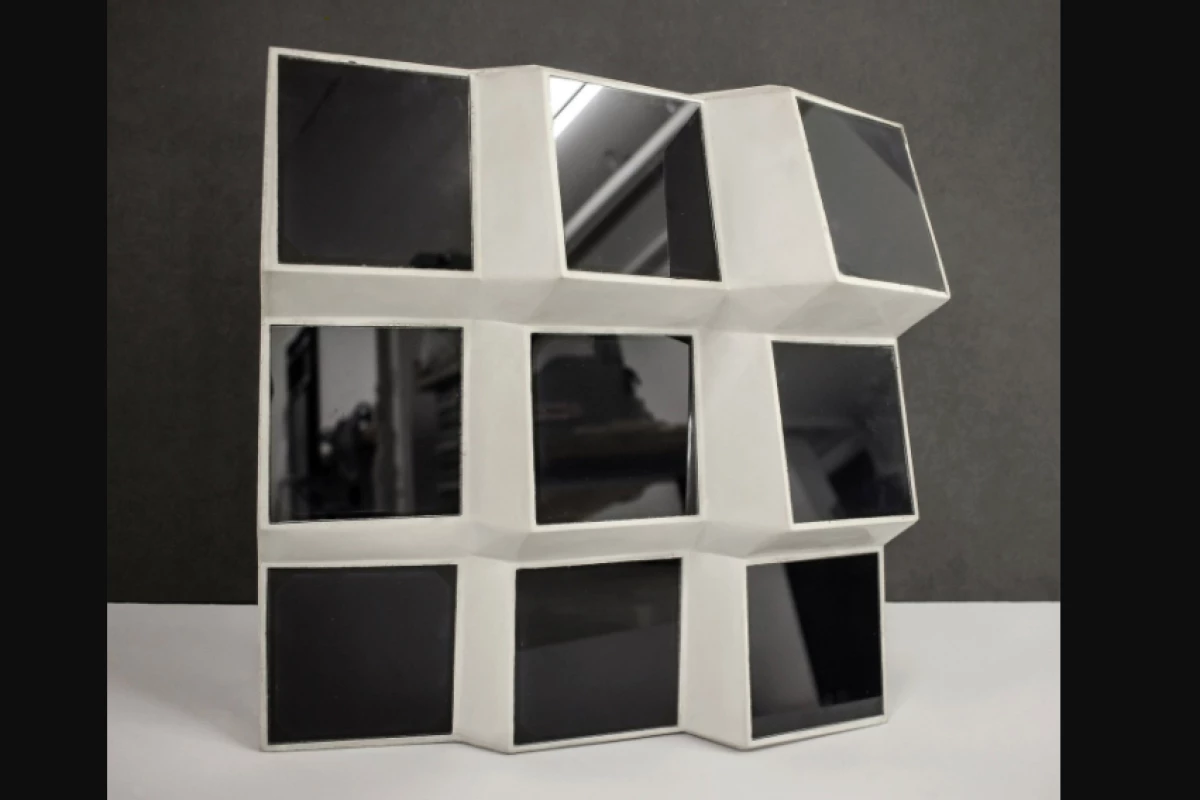While we're used to seeing buildings with photovoltaic panels on their roofs, the fronts of those buildings are typically panel-free. German researchers are working on putting that space to use, with facade-based solar panels.
The technology was initially developed by a team from the Fraunhofer Center for Silicon Photovoltaics – working with colleagues from the Leipzig University of Applied Sciences, and the Dresden University of Technology – as part of the SOLAR.shell project.
Their experimental system is intended to be more aesthetically-pleasing than simply placing traditional panels flat against the front of a building, while also being more effective at receiving sunlight for conversion into electricity.
The latter is achieved via a design in which each panel is angled up toward the sun, instead of facing straight out from the side of the building. As a result, the setup is claimed to deliver up to 50 percent more energy than an equivalent amount of traditional vertically-mounted panels.
Although the panels could be fastened to existing facades made of regular concrete, the researchers are particularly interested in combining them with a long-lasting experimental new material known as Carbon Concrete Composite. Unlike traditional reinforced concrete, which contains steel wires, it incorporates carbon fibers. Sections of facade made from the material could be cast with panel-shaped depressions already in them, allowing for a smoother-looking, snugger fit once the panels are added.
The SOLAR.shell research project itself has already wrapped up, with the follow-up SOLARcon project now focusing on commercializing the system.
Source: Fraunhofer




